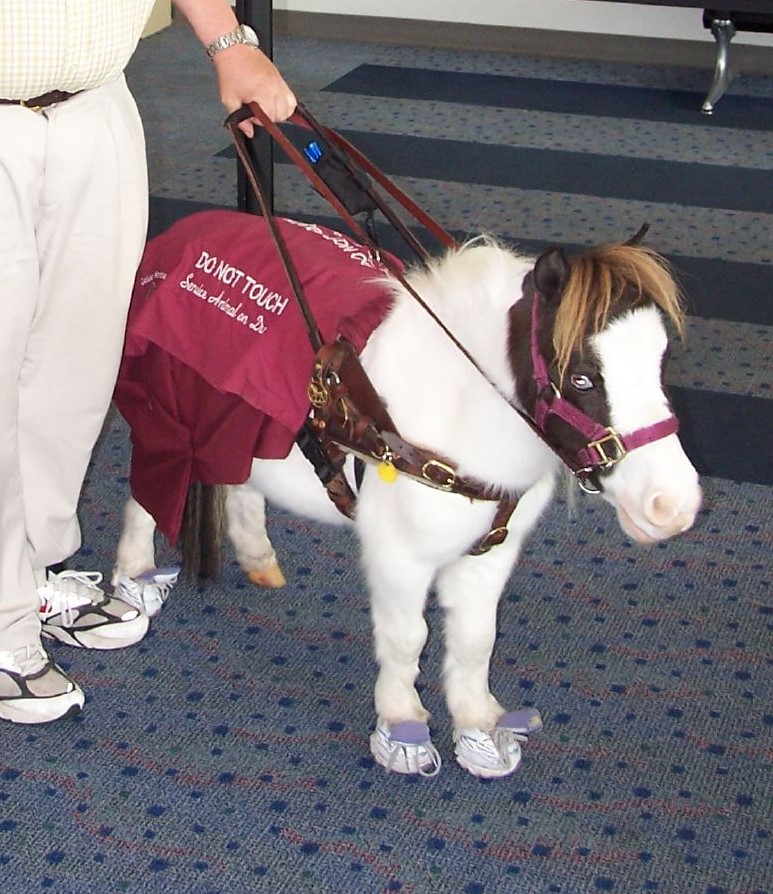This year we are celebrating the 55th anniversary of the Fair Housing Act, which President Johnson signed on April 11, 1968. You can find out more about Fair Housing Month here.
Fair Housing and Assistance Animals
Fair housing is awesome, but what does housing discrimination have to do with horses? Lots! As of March 15, 2011, only dogs are recognized as service animals pursuant to the Americans with Disabilities Act (“ADA”). Disability advocates pushed for other species to also be recognized as service animals under the ADA; however, only the miniature horse lobby was successful during the rulemaking process.
The result was 28 CFR §35.136 (i) or the ‘miniature horse exception’:
A public entity shall make reasonable modifications in policies, practices, or procedures to permit the use of a miniature horse by an individual with a disability if the miniature horse has been individually trained to do work or perform tasks for the benefit of the individual with a disability.
Community associations are not public entities or places of public accommodation, except in very limited circumstances, so they are not generally subject to the ADA. However, when housing providers analyze a fair housing request for accommodation, the ADA definition of service animal applies. The 2020 Assistance Animal Notice references the miniature horse exception at Footnote 18. Service miniature horses are rare in housing, but they do pop up from time to time. Of course, a miniature horse may also be a support animal, and would then fall under the category of ‘unique animal’ with a higher level of documentation required to verify the accommodation request.
Takeaway – a resident may have a miniature horse service (or assistance) animal, and may request an accommodation for the same.
What is a miniature horse? A miniature horse may range in height from 24 to 34 inches (not hands!) and they generally weigh between 70 and 100 pounds. Minis tend to look like a full-sized horse that has been reduced in size. Multiple factors went into creating the miniature horse exception. Dogs can typically serve for at most 12 years, but a mini could provide over 30 years of service.
Having a service animal that can work almost 3 times longer saves time and money for training – guide dog training can be over $60,000. Also, mini horses are great for people who have a dog allergy, a fear of dogs, or whose religious beliefs preclude the use of dogs. Miniature horses tend to be sturdier than dogs, and can provide a solid base for people with balance issues. Finally, miniature horses may wear tiny tennis shoes to protect them from slipping on slick interior flooring. (Disclaimer: the Department of Justice did not take adorable tennis shoes into account when creating the miniature horse exception.)
If you happen to see a miniature horse in your community or if you receive a fair housing request for one, we are happy to help you navigate whether or not your community association should grant an accommodation and allow the miniature horse to remain.
The information contained in this article is not intended to be legal advice and is provided for educational purposes only.
